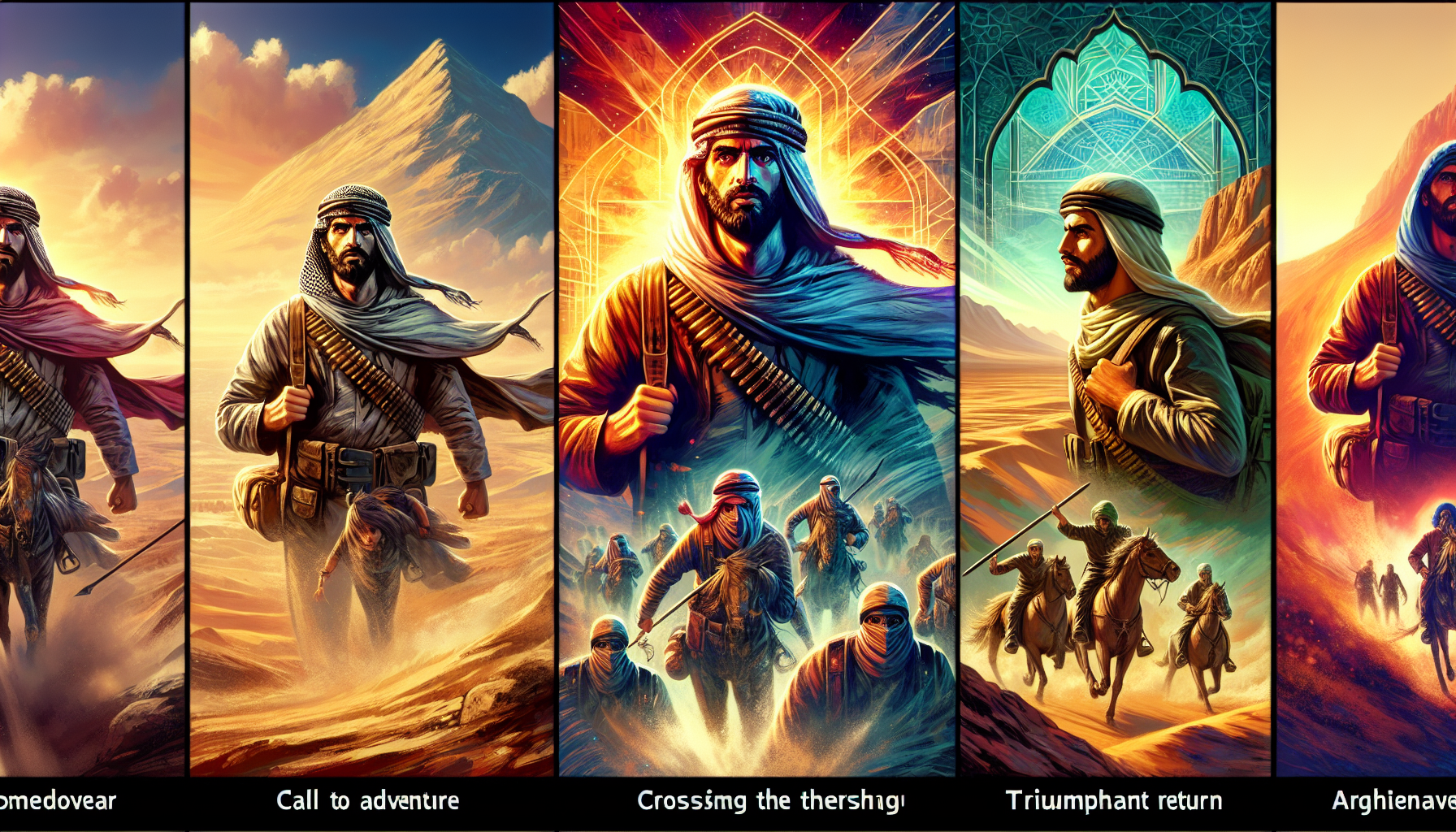The Makings of an Action Hero’s Journey
The allure of action movies lies significantly in the compelling journey of the hero, a character carved out of resilience, determination, and sheer bravery. Structuring an action hero’s journey involves a classic approach that ensures the narrative not only captivates but also resonates with the audience. This timeless formula has been the backbone of many unforgettable cinematic experiences, leading the audience through exhilarating highs and daunting lows alongside the hero.
The Ordinary World
Every action hero’s journey begins in their ordinary world, a setting familiar to them and reflective of their current life’s status quo. This phase allows the audience to connect with the hero, understanding their background, motivations, and the initial lack of adventure in their life. It’s the calm before the storm, setting the stage for the upcoming disruption that propels the hero into the unknown.
The Call to Adventure
The hero’s life is disrupted by a call to adventure, a pivotal event or challenge that thrusts them into the heart of the action. This call to adventure is a critical element, serving as the transition from their ordinary world to a new, unfamiliar one. It often involves a direct threat or challenge that the hero cannot ignore, compelling them to step out of their comfort zone.
Refusal of the Call
Initially, the hero may hesitate or refuse the call to adventure due to fear, a sense of duty, or any other personal reason. This moment of refusal adds depth to the character, showcasing their vulnerabilities and the internal struggle that accompanies the decision to embark on a dangerous path. It makes the eventual acceptance of the call more meaningful, marking a significant turning point in the hero’s journey.
Meeting with the Mentor
The hero doesn’t face the journey alone. Meeting with a mentor provides them with the guidance, knowledge, or skills needed to face forthcoming challenges. This figure plays an essential role in preparing the hero for the trials ahead, offering wisdom, encouragement, and sometimes, critical tools or weapons. The mentor’s influence is vital in shaping the hero’s mindset and approach to the adventure.
Crossing the Threshold
Armed with new knowledge and perhaps a clearer purpose, the hero crosses the threshold, definitively leaving behind their ordinary world. This stage marks the beginning of the hero’s active pursuit of their goal, facing challenges and adversaries head-on. It’s a commitment to change, a step into a world filled with danger and unknowns, signaling the start of the hero’s transformation.
Trials, Allies, and Enemies
The heart of the action movie unravels as the hero encounters numerous trials, forms alliances, and confronts enemies. Each challenge serves to test and strengthen the hero, forging their character in the crucible of conflict. Allies provide necessary support and companionship, while enemies offer formidable obstacles that push the hero to their limits. This phase is crucial for the development of the hero, showcasing their resilience, tactical prowess, and moral integrity.
Approach to the Inmost Cave
The approach to the inmost cave represents the hero’s preparation for the central ordeal or conflict of their journey. It’s often a moment of introspection and strategy, as the hero anticipates the confrontations that lie ahead. This phase can involve literal or metaphorical descent into danger, serving as the precursor to the climax of the story.
The Ordeal
In the heart of the cave, the hero faces their greatest challenge yet, a confrontation with death or their deepest fear. This ordeal is the climactic moment of the story, testing every fiber of the hero’s being. Triumph here often involves a sacrifice or a significant loss, leading to a profound transformation in the hero. It’s the ultimate test of courage, wit, and willpower.
The Road Back
Having survived the ordeal, the hero embarks on the road back to their ordinary world. This return journey, however, is seldom straightforward. It may involve a pursuit by angered enemies or a final hurdle that the hero must overcome. This phase represents the hero’s resolve to complete their journey and restore balance or bring back a boon to their community.
The Resurrection
The hero’s final test, often occurring near the end of their journey, serves as a “resurrection” where they face death one last time in a climactic moment. This test is their final moment of transformation, symbolizing the death of their old self and the birth of the new. It solidifies the hero’s achievements and marks them as a true hero.
Return with the Elixir
In the journey’s culmination, the hero returns to their ordinary world, transformed and bearing the elixir—a boon, knowledge, or experience that can benefit their community. This return is not just a physical one but signifies the hero’s internal transformation. They are no longer the person they once were, having been reborn through their trials and tribulations. The action hero’s journey thus comes full circle, with the hero standing as a testament to the enduring spirit of adventure and resilience.







